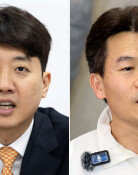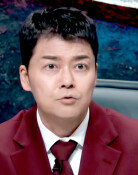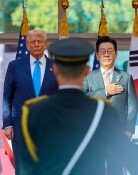[Opinion] Expressions Discriminating Women
[Opinion] Expressions Discriminating Women
Posted May. 03, 2008 08:50,
There is a 1947 American movie entitled Gentlemans Agreement. It features a writer who is offered by a magazine to contribute an article about anti-Jewish sentiment in American society at the time. For the sake of the article, the writer, who is not Jewish, passes himself off as a Jew. Shortly, he is haunted by discriminations he has never faced before. His son is vilified as a dirty Jew, and he finds himself turned away at a hotel in front of a woman whom he falls in love with. In the end, the article turns American society upside down.
In the movie, gentlemans agreement refers to the anti-Jewish sentiment that nobody at the time challenged. On the surface of it, this term highlights the importance of being truthful. But it also means a secret agreement that no one wants to reveal as manifested in the movie. So if a man is mentioned with the term, he feels dishonored. Recently, the National Institute of the Korean Language under the Culture and Tourism Ministry has pointed to the term as an example of representing male superiority on the ground that there is no such term as ladys agreement, and has presented the agreement on honor as an alternative. Along with this, the institute took issue with 5,087 expressions that are in common use.
Some make sense but others dont. For example, the institute picked some adjectives, including baby-faced, unyielding, feel soft, and effeminate as terms that evoke gender discrimination. But it fails to present a convincing case to support its argument. In the example of one son and two daughters, and father-in-law and mother-in-law, they are parallel expressions rather than indicating gender superiority. There is no change in meaning when the order of the words is reversed. It deserves attention that most people call their parents mom and dad, rather than dad and mom, in this regard. Why not suggest change Bu-Mo meaning father and mother to Mo-Bu? Donggeonyeo, meaning a woman living together without marriage and neyeonnyeo, referring to a lover, are used along with donggeonam, and neyeonnam. But the institute said the former two words are discriminatory. If there is a problem with jipsaram meaning a wife, baggatsaram, meaning a husband is also wrong in the same manner.
Words are cultural products that reflect the times. If we try to judge them with todays perspective and standards, we cannot grasp the real meaning. This attitude is likely to result in the lack of expressions. Correcting wrong expressions is something to be recommended but driving this effort into gender confrontation should be avoided. If they raise the issue with cheonyeojak and cheonyeobihaeng, whose English equivalents are a maiden work and maiden flight, they might also have to fix the English. It seems that the institutes well-intentioned moves will end up depriving our language of plenty of expressions that are beautiful and full.
Editorial Writer Yook Jeong-soo (sooya@donga.com)







